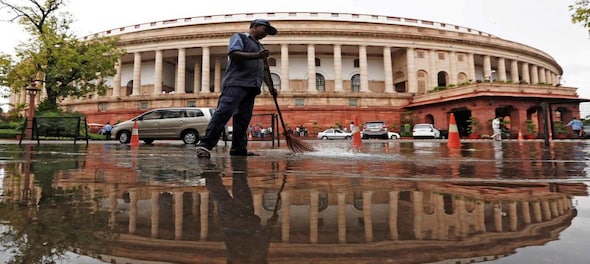
Rajya Sabha Chairman Jagdeep Dhankhar on August 3 referred the complaints against Trinamool MP Derek O'Brien and Raghav Chadha of the Aam Aadmi Party (AAP) to the Privileges Committee. Bharatiya Janata Party members Laxmikant Bajpayee and Surendra Singh Nagar registered the complaint related to the privileges of the House against Derek O'Brien, according to the Rajya Sabha secretariat. In Chadha's case, the complaint was filed by BJP MPs Sushil Kumar Modi and Deepak Prakash.
The complaint against O'Brien was filed for his repeated use of the verified personal Twitter account to share portions from his July 20 House statements. The TMC lawmaker had shared parts of his speech which were removed from the official record as per the direction of the Rajya Sabha Chairman.
Raghav Chadha is accused of purposefully presenting misleading information to the media on July 24. This pertains to the suspension of AAP MP Sanjay Singh from Rajya Sabha for the rest of the Monsoon Session for violation of the directives of the Chair.
The complaint contends that Chadha during an interview said that Singh would continue to sit inside the Chamber despite his suspension. This action is in violation of Rule 256 of the Rules of Procedure and Conduct of Business in the Rajya Sabha, mentioned in the privilege notice.
Understanding privilege motions
Privilege motions revolve around the concept of parliamentary privilege, which confers certain rights upon Members of Parliament to facilitate the conduct of business on the floor of the House. Though an exhaustive list of these privileges doesn't exist, they generally encompass the freedom of expression during parliamentary debates, with MPs being immune to court proceedings for their speech.
When it is believed that a privilege has been breached, any member can raise a motion. If admitted by the Chairman, it can be referred to the Privileges Committee. The Committee consists of ten members who are nominated by the Chairman of the Rajya Sabha. The Privileges Committee is headed by a Chairman chosen from among the members.
For a question of privilege to be raised, two conditions must be fulfilled- the matter must relate to a recent occurrence and necessitate Rajya Sabha’s intervention.
The Committee's responsibility is to examine cases and provide suitable recommendations. It can summon relevant individuals for examination and study pertinent documents. Subsequently, the committee generates a report, to be presented within a month of the reference date if no specific time has been set by the Rajya Sabha Chairman.
The report's consideration requires a motion, with the possibility of suggested amendments. Members can agree, disagree or propose amendments to the Privileges Committee’s report.
(Edited by : Sudarsanan Mani)
Check out our in-depth Market Coverage, Business News & get real-time Stock Market Updates on CNBC-TV18. Also, Watch our channels CNBC-TV18, CNBC Awaaz and CNBC Bajar Live on-the-go!


Yadav family members in focus in third phase of Lok Sabha polls in Uttar Pradesh
May 6, 2024 12:59 PM
Haryana Lok Sabha elections 2024: Seats, schedule, Congress-led INDIA bloc candidates and more
May 6, 2024 12:09 PM
Andhra Pradesh: Kuppam loyalty test for TDP chief Chandrababu Naidu
May 6, 2024 9:35 AM

